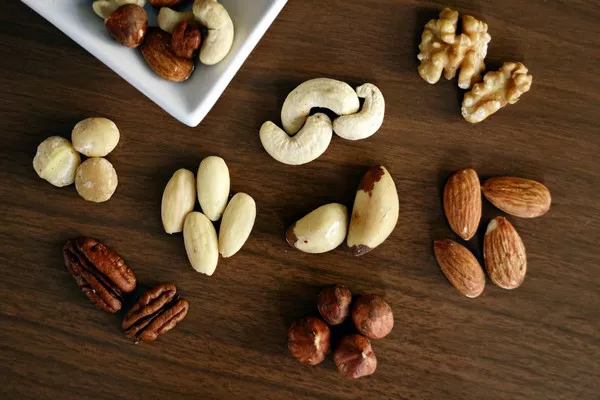Incorporating just one daily serving of nuts into your diet could potentially lower your risk of depression, according to a recent study. While the numerous benefits of nuts in terms of nutrition, chronic disease prevention, antioxidant properties, and cognitive enhancement have long been recognized, this new research underscores an additional advantage—lowered depression risk.
The study, which sourced data from 13,504 adults enrolled in the United Kingdom (UK) Biobank, sought to investigate the relationship between nut consumption and depression. At the commencement of the study, all participants were devoid of any depression diagnosis.
Researchers closely monitored participants to determine if they developed depression over the study’s duration and assessed their nut consumption habits.
The findings indicated that individuals with a higher intake of tree nuts experienced a reduced risk of depression.
The Nutritional Nexus to Mental Health
Nuts stand out as a nutritional powerhouse with potential implications for mental health. Several nutritional components present in nuts are believed to contribute to their positive impact on mental well-being. Bruno Bizzozero Peroni, a research assistant at the Health and Social Research Center (University of Castilla-La Mancha, Spain), and the principal investigator of the study, explained, “The main components of the nutritional profile of nuts (e.g., dietary fiber, omega-3 fatty acids, phenols, polyphenols, and vitamin E) encompass a wide range of anti-inflammatory and antioxidant qualities that may play a role in protecting against depression.”
Given that increased inflammation is associated with a higher risk of depression, the connection between nuts and mental health becomes clearer. Remarkably, the study revealed that even a modest daily serving of nuts could yield significant results.
Over a span of 5.3 years, participants who consumed 30 grams of nuts daily (approximately a handful) enjoyed a 17% lower risk of depression.
Importantly, this protective association persisted even when factoring in other risk variables such as obesity, smoking, insufficient physical activity, and certain medical conditions. Those who combined nut consumption with a healthy lifestyle experienced even greater benefits.
Nuts as Part of a Comprehensive Strategy
While the study suggests a link between daily nut consumption and a reduced risk of depression, it is crucial to clarify that causation cannot be established. Bizzozero noted that while there is a correlation between nut consumption and depression, comprehensive, large-scale, long-term clinical trials are necessary to better comprehend the direct influence of nut consumption on depression risk, particularly across individuals with diverse lifestyles and health profiles.
Therefore, relying solely on nuts to mitigate depression risk may not be the optimal approach. In cases of genuine depression concerns, seeking professional healthcare advice is paramount rather than solely relying on dietary adjustments.
However, the advantages of incorporating nuts into a balanced diet extend beyond the potential reduction in depression risk. Nuts have demonstrated various benefits, including aiding in weight management, supporting heart health, enhancing cognitive function, and promoting gut health.
For instance, research published in BMC Med suggested that consuming pistachios three times a week could reduce mortality risk by 39%. Additionally, pistachios boast a high antioxidant capacity, rivaling that of renowned antioxidant-rich foods such as blueberries, pomegranates, cherries, and red wine.
Mary Ellen Phipps, MPH, RDN, LD, author of The Easy Diabetes Cookbook, emphasized, “Nuts provide blood sugar-stabilizing nutrients like plant-based fat, fiber, and protein. Stable blood sugar levels are associated with increased energy levels and reduced fatigue.”
While further investigation is required to elucidate the connection between nuts and depression, it is evident that nuts can serve as a valuable addition to a health-conscious diet.
Enhancing Mental Health Through Dietary Choices
Mental health is influenced by numerous factors, with diet being just one of them. It is entirely possible for individuals to adhere to a healthful diet and still experience depression. Nonetheless, there is no downside to focusing on foods that may support mental health.
If you are striving to support your mental health through dietary choices, incorporating daily servings of nuts alongside other nutritious foods such as fruits, vegetables, whole grains, fish, olive oil, low-fat dairy, and antioxidant-rich foods (like pistachios) is recommended.
Concurrently, it is advisable to limit consumption of red and/or processed meats, refined grains, refined sugars, high-fat dairy products, butter, potatoes, and high-fat gravy in the pursuit of improved mental well-being.

